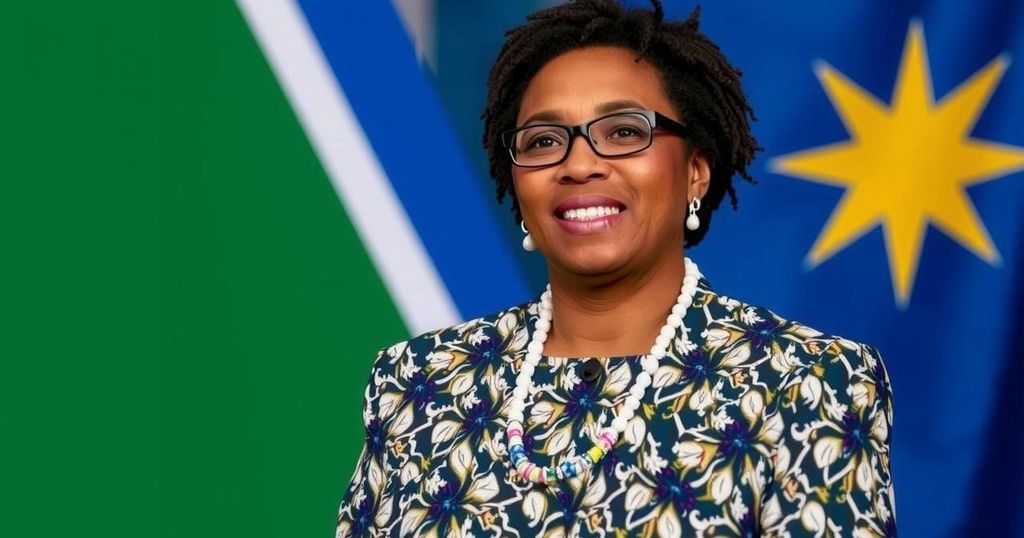Namibia Prepares for Landmark Election of First Female President
Namibia is set to elect Netumbo Nandi-Ndaitwah, the first female president, after she leads with over 58% of the vote in a contested election. While her closest rival, Panduleni Itula, has received approximately 25%, he plans to dispute the results due to claims of electoral misconduct. Swapo, ruling since 1990, faces scrutiny in a shifting regional political landscape.
Netumbo Nandi-Ndaitwah, the vice president of Namibia and a member of the South West Africa People’s Organisation (Swapo), is poised to become Namibia’s first female president as the electoral commission announces that she has secured over 58% of the votes from last week’s disputed election. Her main competitor, Panduleni Itula of the Independent Patriots for Change (IPC), garnered just over 25% of the total votes. Despite Nandi-Ndaitwah’s apparent victory, Itula has proclaimed that his party will contest the electoral results due to alleged malfeasance and logistical issues during the polling process.
Swapo has maintained political power in Namibia since the nation’s independence in 1990, when it led the fight against apartheid South Africa. Recent electoral trends in the region, including South Africa’s African National Congress losing its outright parliamentary majority and the exit of the Botswana Democratic Party, raised questions about Swapo’s sustained popularity. Nandi-Ndaitwah, who has been prominent in government for 25 years, would join Tanzania’s Samia Suluhu Hassan as one of the few female heads of state in Africa, should she be confirmed in her role.
In order to secure a definitive victory without necessitating a run-off election, a candidate must achieve more than 50% of the votes. Itula, regarded as a charismatic candidate, has previously diminished Swapo’s electoral dominance in the 2019 elections, reducing their share from 87% to 56%. As the IPC seeks to challenge the election outcome through legal means, they have also urged individuals who faced voting disruptions to lodge complaints with the authorities.
The backdrop to Namibia’s electoral proceedings illustrates the country’s historical political landscape, where the Swapo party has played a pivotal role since independence. The 2024 elections have been framed against a backdrop of regional political transformations, notably the diminishing clear majorities of traditional liberation parties across Southern Africa. This political climate raises significant questions about the continuity of Swapo’s dominance and reflects broader trends in post-colonial governance on the continent. The potential election of Nandi-Ndaitwah as the first female president of Namibia would further encapsulate a shift towards gender inclusivity in African leadership roles, albeit under contested circumstances.
In conclusion, as Namibia stands on the brink of electing its first female president, the electoral outcome remains marred by disputes and allegations of malpractice. Netumbo Nandi-Ndaitwah’s potential presidency signifies a historic moment for the nation yet also reflects ongoing challenges within the electoral process. The situation highlights the tense political environment in Namibia, where traditional power structures are being tested and where the aspirations for justice and accountability in governance are increasingly prominent among voters.
Original Source: www.bbc.com




Post Comment